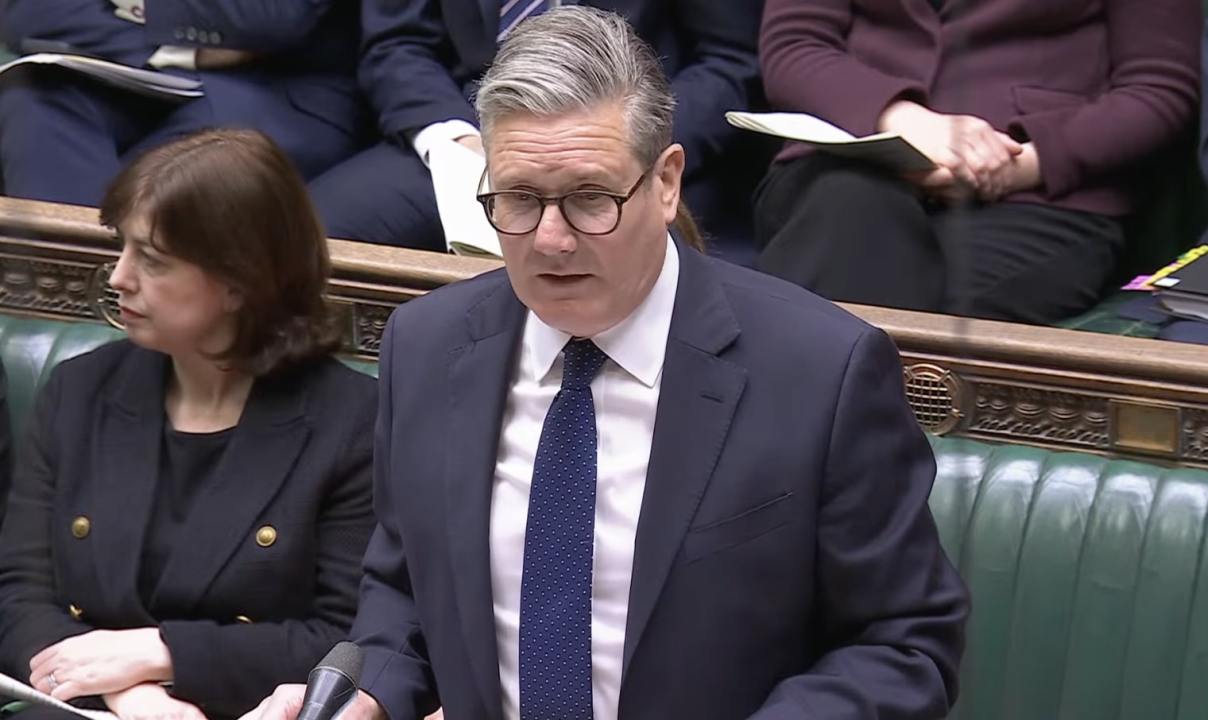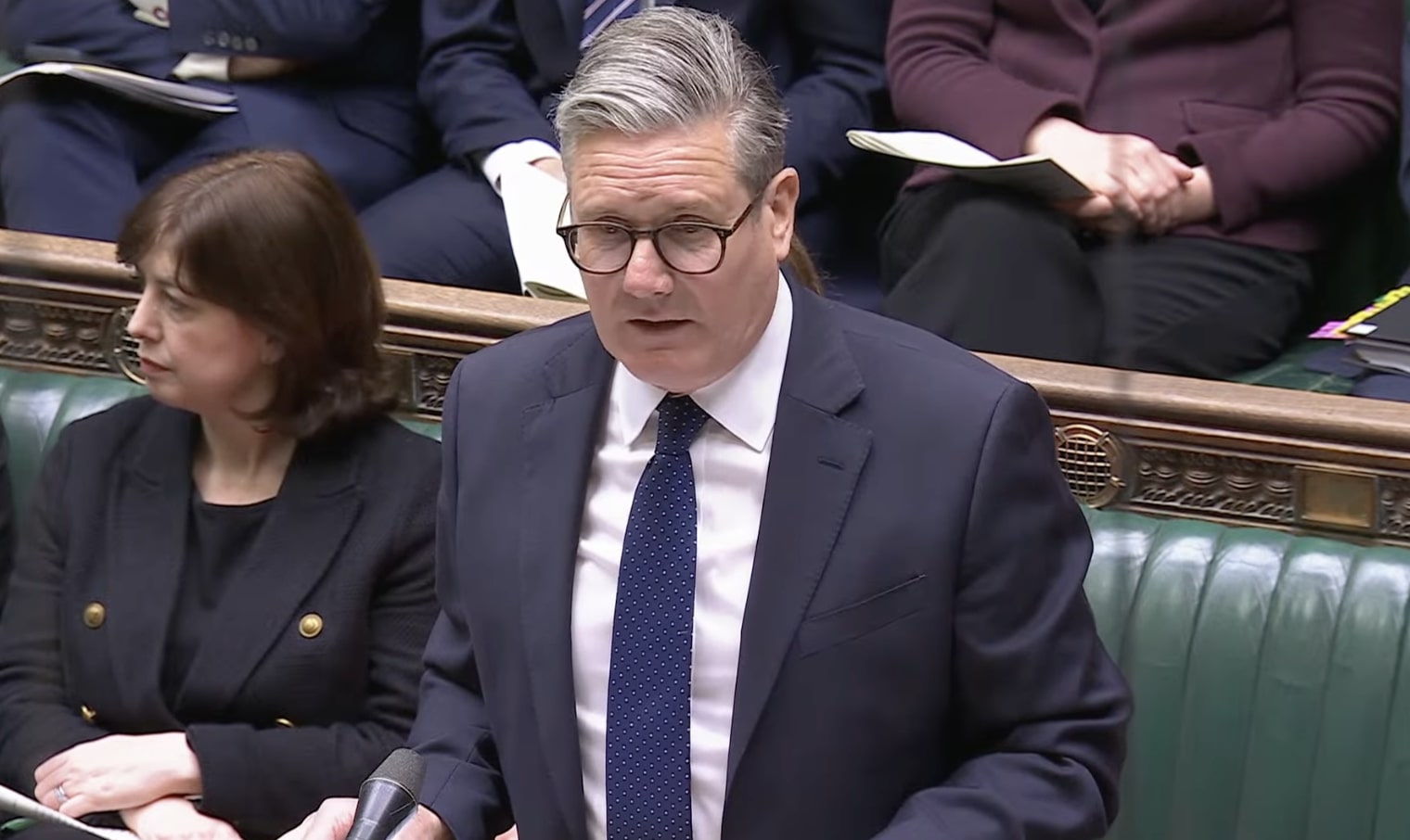Keir Starmer was well aware that Kemi Badenoch would probably use Prime Minister’s Questions today to run a victory lap following the Supreme Court judgement on the definition of a woman. She has long been clear about the need to make biological sex the basis of such a definition, while Starmer has been on a journey over the matter. The Prime Minster came armed with plenty of defences and deflections, but still struggled.
In response to Badenoch’s first question, which was whether Starmer would accept he was wrong, he said ‘let me clear’, which is always a sign that someone is about to obfuscate. The Prime Minister continued: ‘I welcome the Supreme Court ruling on this issue. It brings clarity and it will give confidence to women and of course service providers. The Equality and Human Rights Commission will now issue updated guidances and it is important that that happens and also that providers act accordingly.’ He then added, somewhat loftily: ‘I do think this is the time now to lower the temperature and move forward and to conduct this debate with the care and compassion that it deserves’.
This mini-lecture would have had so much more force had Starmer made any attempt over the past few years to improve the quality of the debate over sex and gender. Instead of taking his responsibility as a political leader who can lower the temperature seriously, he has largely avoided the debate altogether, other than to make a series of changing assertions about what he believes when pushed by broadcasters, and to disagree with one of his then-backbenchers Rosie Duffield (a survivor of domestic abuse, no less) about whether you can say that only women have a cervix.
It was also not a particularly smart strategy with Badenoch, given lecturing her about how to behave is one of the sure-fire ways of riling her even more. The Tory leader immediately pointed out that Starmer had let down Duffield, demanding that he ‘apologise to the member for Canterbury, the very brave member for Canterbury, for hounding her out of the Labour party, simply for telling the truth.’
Starmer, though, decided to continue with the lecture, which gave the probably not inadvertent impression that he didn’t think Duffield had behaved well. He told the chamber: ‘I’ve always approached this on the basis that we should treat everyone with dignity and respect.’ Duffield, now sitting on the independent backbenches, scowled and shook her head. Starmer carried on, arguing that ‘when we lose sight of that approach and make it a political football – as happened in the past – then we end up with the spectacle of a decent man – and he was a decent man – the previous prime minister, diminishing himself at this despatch box by making trans jokes while the mother of a murdered trans teenager watched from the public gallery.’
It was notable that Starmer had to go back to Rishi Sunak, rather than pointing out any failings on the part of Badenoch, who has been very forthright but respectful on this issue. This undermined the Prime Minister’s point: Badenoch has not made this a political football and has taken part in the debate, while Starmer has refused, complaining from the sidelines about how other people are behaving.
Badenoch picked up the political football line, saying ‘he talks about a political football: he practically kicked her [Duffield] out of his party!’ She then pointed out that it had taken him six days to respond to the judgement, accusing him of being scared.
Where Starmer did have a reasonable point was in his next set of answers, where he pointed out that the Tories had not in practice presided over any clarity or improvement in protections for women’s spaces. He accused Badenoch of doing ‘precisely nothing’ when she was equalities minister, which she didn’t like. She argued that she had ‘helped commission the Cass Review’, and listed other changes she had made on single sex toilets and puberty blockers.
The pair then had a bit of a knockabout over Reform and WhatsApp groups, before Badenoch dragged the exchanges back to the Equality and Human Rights Commission, and whether Starmer would support and then reappoint its chair Baroness Falkner. Her payoff question involved her accusing him of lacking moral courage, saying there was a ‘choice between a Conservative party that stood up for common sense and a Labour party that bends the knee to every passing fad’. Starmer was considerably weaker, harping on about Robert Jenrick’s leadership ambitions. It was almost as though, once again, he was quite keen for the whole debate to stop.







Comments